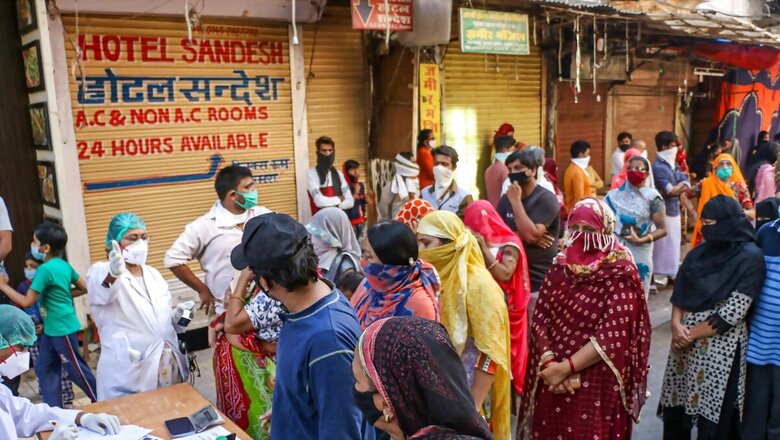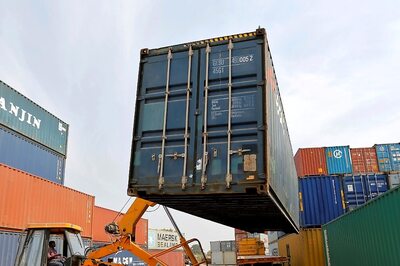
views
The Centre on Monday issued an advisory to all states given the recent spike in Covid-19 cases across the country. India recorded 260 new coronavirus infections in the last 24 hours, according to the Union Health Ministry data.
In a letter addressed to Health Secretaries of all the States and Union Territories, the government urged the states to maintain a constant vigil over the Covid cases in their region.
Centre issues advisory to States in view of a recent upsurge in COVID-19 cases and detection of first case of JN.1 variant in India. States urged to maintain a state of constant vigil over the COVID situation. States to report & monitor district-wise SARI and ILI cases on a… pic.twitter.com/NpS1wAQLM8— ANI (@ANI) December 18, 2023
The states have also been directed to report and monitor district-wise SARI and ILI cases regularly.
The Centre also advised States to ensure adequate testing including a higher number of RT-PCR tests, and send positive samples for genome sequencing to INSACOG laboratories
Here’s what the advisory says:
- States were advised to put in place requisite public health measures and other arrangements to minimise the risk of Covid-19.
- States were also urged to ensure effective compliance with the detailed operational guidelines for the revised surveillance strategy for coronavirus as shared by the Union Ministry of Health and Family Welfare.
- States are asked to monitor and report District-wise Influenza-like Illness (ILI) and severe Acute Respiratory Illness (SARI) cases in all health facilities regularly including in the Integrated Health Information Platform (IHIP) portal, to detect the early rising trend of cases.
- States were advised to ensure adequate testing in all the districts as per Covid-19 testing guidelines and maintain the recommended share of RT-PCR and Antigen tests.
- States were encouraged to increase the number of RT-PCR tests and send positive samples for genome sequencing to Indian SARS COV-2 Genomics Consortium (INSACOG) laboratories to enable timely detection of new variants, if any, in the country.
- States to ensure active participation of all public and private health facilities in the drill being conducted by the Union Health Ministry, to take stock of their preparedness and response capacities.
- States also promote community awareness to seek their continued support in managing Covid-19, including adherence to respiratory hygiene.
This comes after India this week detected the first case of the new JN.1 variant. The infection was found in Kerala as part of an ongoing routine surveillance activity of the Indian SARS-CoV-2 Genomics Consortium (INSACOG).
The case was detected on December 8 in an RT-PCR positive sample from Karakulam in Thiruvananthapuram district, Dr Rajiv Bahl, Director General of the ICMR, said.
The patient is a 79-year-old woman with mild Influenza-like symptoms. The doctors said that she had fully recovered from her illness.
Kerala Health Minister Veena George on Sunday said the Covid-19 sub-variant JN.1 that has been detected in the state was not a cause for concern.
Speaking to the media about the new variant, George said this was detected months ago in Indian passengers who were screened at Singapore Airport.
JN.1 Variant of Coronavirus
The JN.1 variant is causing a surge in infections worldwide and raising alarm bells among health authorities. First identified in Luxembourg, JN.1 variant has since spread to over 20 countries. It is a descendant of the Pirola variant (BA.2.86).
The case was first detected in the US in September this year. Seven cases of the specific subvariant were found in China on December 15.




















Comments
0 comment